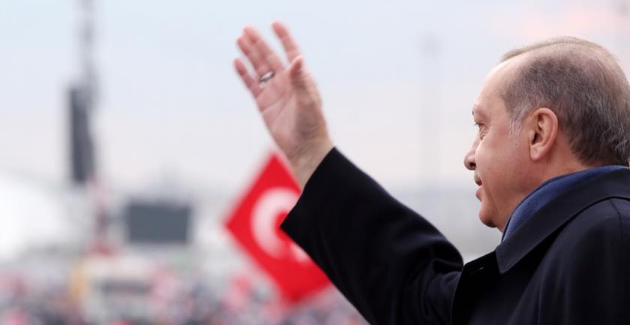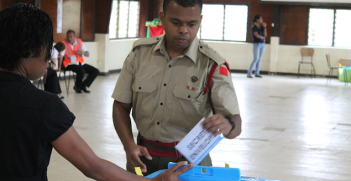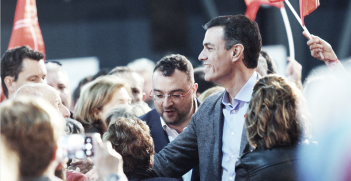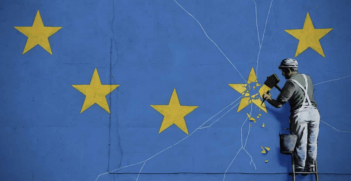Turkey's Referendum: A New Pasha?

This Sunday, Turkey will hold a national referendum seeking to confirm parliamentary sanction for a series of key constitutional changes to the political system. If the referendum passes, Turkey’s separation of powers will be much diminished and the president’s authority will resemble that of the traditional Pasha.
If Turkey’s national referendum on Sunday 16 April passes, the changes will be far reaching. Overall, the changes are designed to strengthen and concentrate power in the hands of the president. They would make the president the official head of state in addition to bestowing upon him the mantle of head of the ruling political party in parliament.
Unlike the American system of government, the new Turkey would see a partisan president in control of both the executive and legislative branches. The parliament would lose its Office of the Prime Minister as well as control over budgets and appointments.
The president would also have the power to dissolve parliament, ensuring the predominance of presidential power over the party system. Political parties would lose influence to the Office of the President. The head of the executive branch would have control over most judicial appointments, and it is very difficult indeed to see how the judiciary could overrule the executive authority in any given situation. For all these reasons, the new brand of constitutional republic proposed in Turkey’s upcoming referendum does not reflect the separation of powers enshrined, for example, in the American constitution.
Growing Islamisation
Often the historical political culture can dictate the way institutional changes occur. In Turkey’s case, the issue is compounded by several internal factors. Few would question the salutary effect that the election of the Justice and Welfare Party (AK Party) had on Turkish democracy at the turn of this century. It was a breath of fresh air, a departure from the hegemony of military power and its interference in politics. It took additional effort from Turkish society, including the judiciary branch, to extirpate the role of the military and place it under legitimate legislative and executive surveillance.
As time went on, however, the AK Party began to dismantle other attributes of Turkey’s secular government with gradual Islamisation measures. Under the cloak of conservative religious sentiment, these measures marginalised the secular legacy of Ataturk, and the opposition parties inspired by it, to ensure the political longevity of the AK Party.
The head scarf controversy is a good example of how the AK Party, under the watchful eye of first Prime Minister and now President Recep Tayyip Erdogan, forged an electoral base of Turkish nationalists and soft Islamists. Kurds, Alevis and secularists are not included in its base. Some AK Party intellectuals even began to talk of a new brand of neo-Ottomanism including a more active role in the Middle East and North Africa. Since 2002, we have also noticed a sharp decline in the freedom of the press in Turkey. Jailing journalists only highlights the problems associating with holding a free and fair referendum on changes to the Turkish constitution in 2017.
New Ottoman Empire
If passed, the referendum will create a state with several things in common with its Ottoman parent at the turn of the 20th century. First, it will create an executive authority not based on the separation of powers and more closely resembling the traditional role of the pasha. Second, the reliance on Islamism to govern is manifest and growing; the strength of the AK Party is directly proportional to that growth.
It is important to note that the referendum process was set in motion long before the July 2016 military coup. What we saw last summer was a fight, partly manufactured, between former AK Party loyalists and party builders (the Gulenists) and those in the AK Party seeking to monopolise and play the Islamist card for domestic political gain. During the referendum campaign itself, President Erdogan made little effort to calm the waters when European politicians began to question the arrival of Turkish ministers on their territory seeking to campaign for the ‘yes’ side. Picking a fight with non-Muslim Europe is part of Erdogan’s referendum strategy to capture Turkish diaspora votes by playing on their alienation.
It remains to be seen whether Turkey can fully scuttle the legacy of Ataturk. Thumbing their noses at Europe is not a particularly wise policy given Turkey’s reliance on trade with the West and workers’ remittances. President Erdogan has not earned enough trust when discussing the fate of women, dissent and independent journalists in Turkey.
A ‘yes’ vote on Sunday will accelerate Turkey’s future as Europe’s new sick man.
Dr Bruce Mabley is the director of the Mackenzie-Papineau Group think tank based in Montreal devoted to analysis of international politics. Dr Mabley is a former Canadian diplomat and academic who has written a number of analytical and academic texts. In 2002, he was decorated by the French Republic as Chevalier des Palmes académiques.
This article is published under a Creative Commons Licence and may be republished with attribution.





